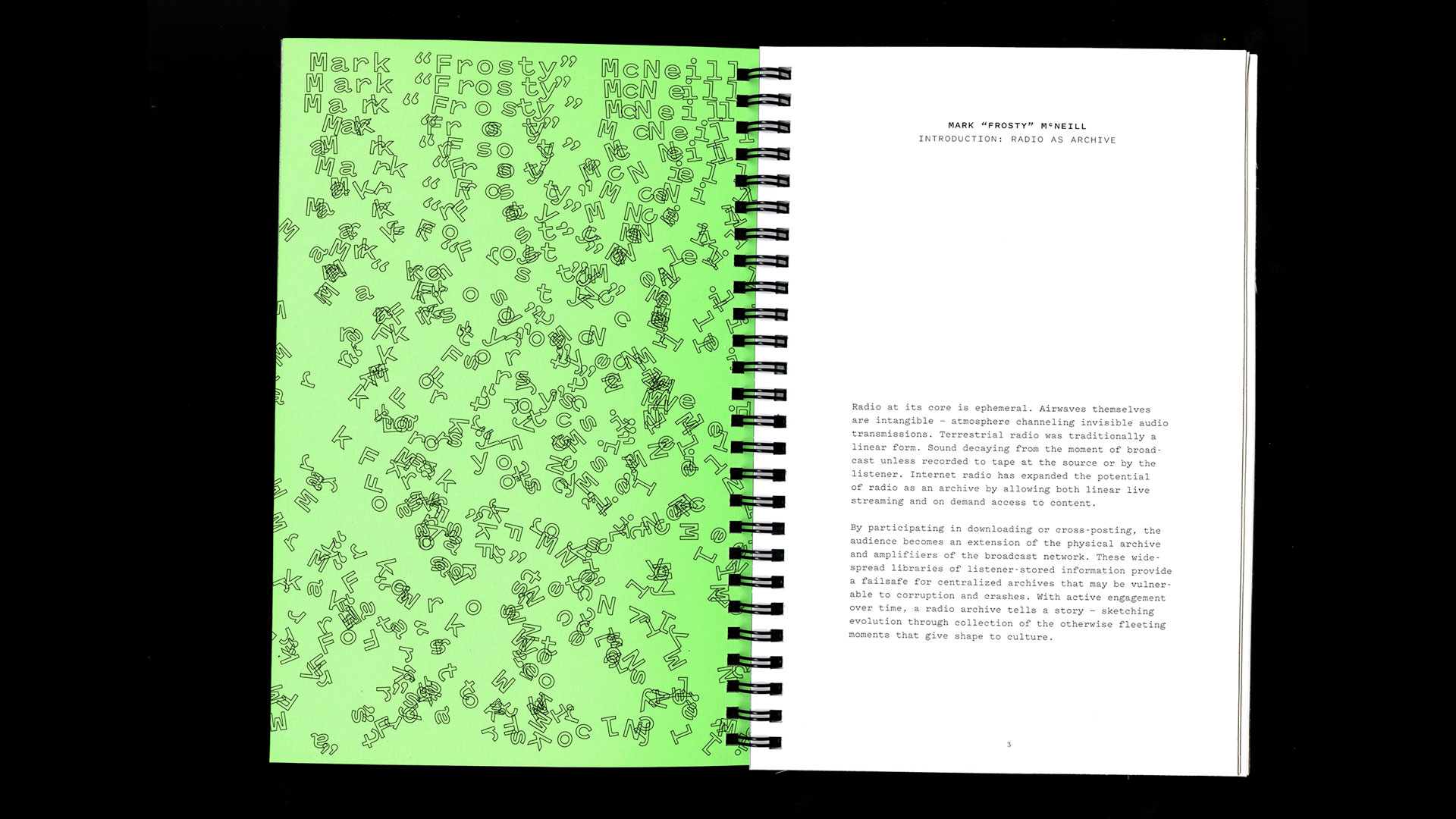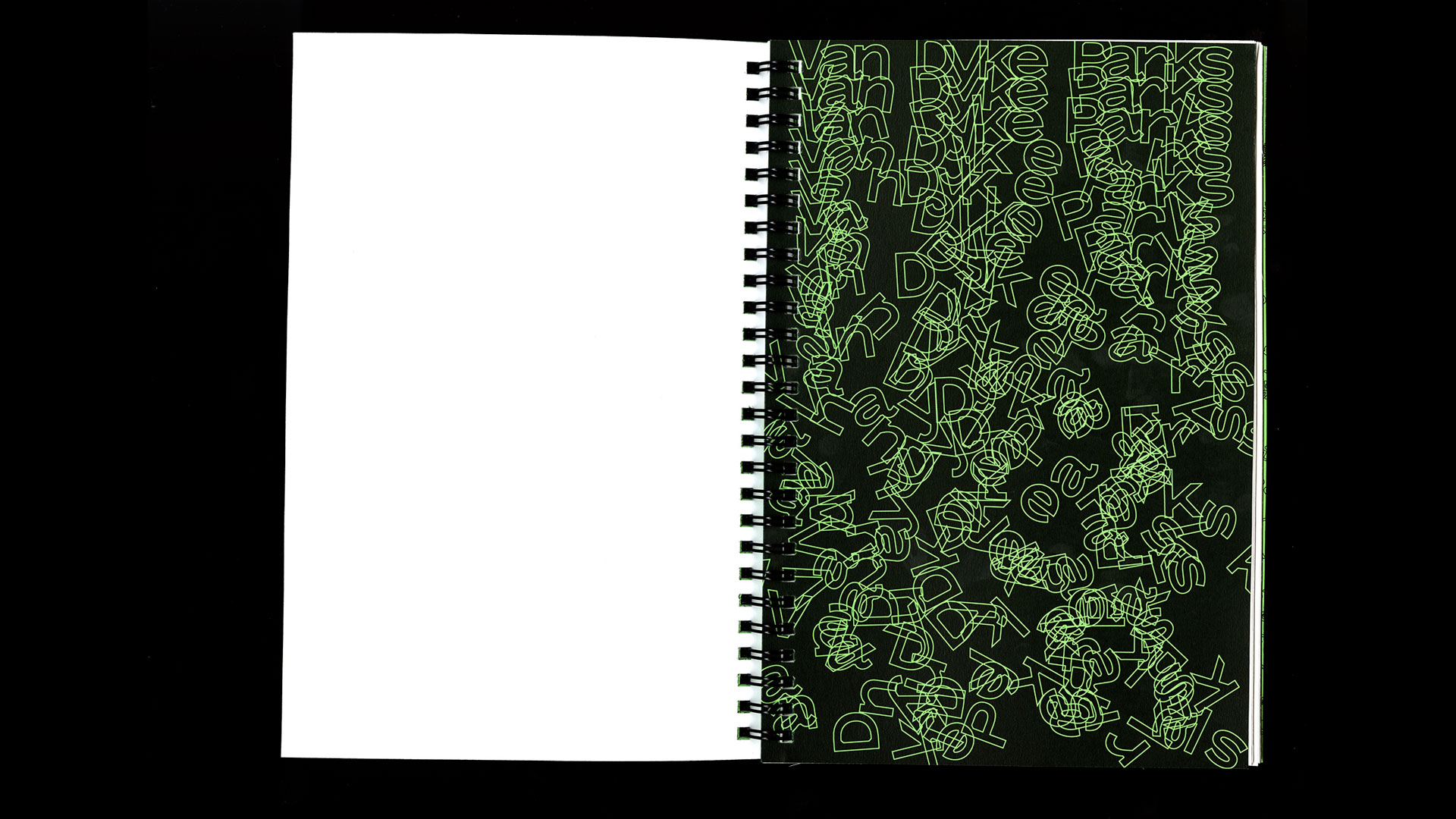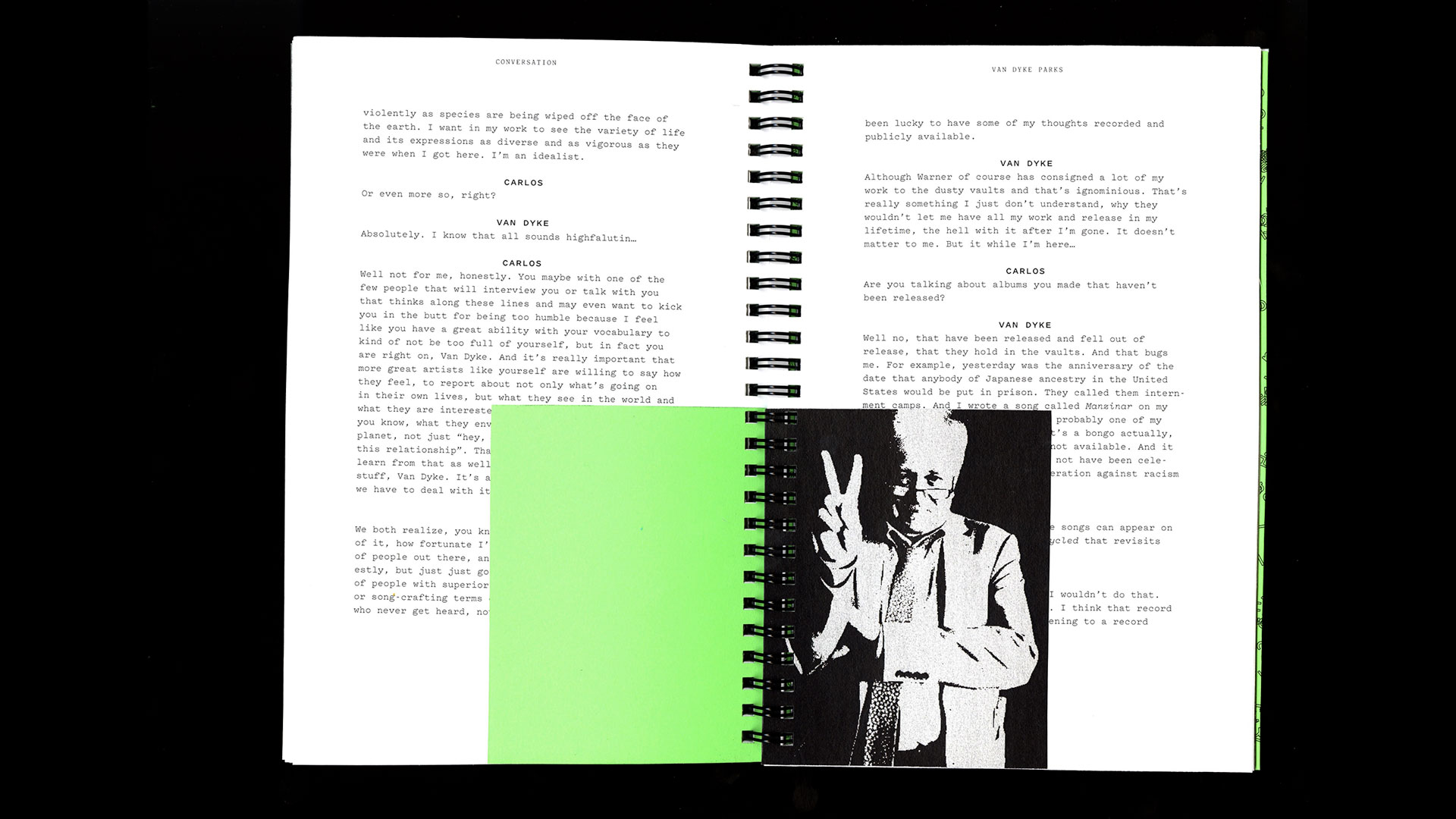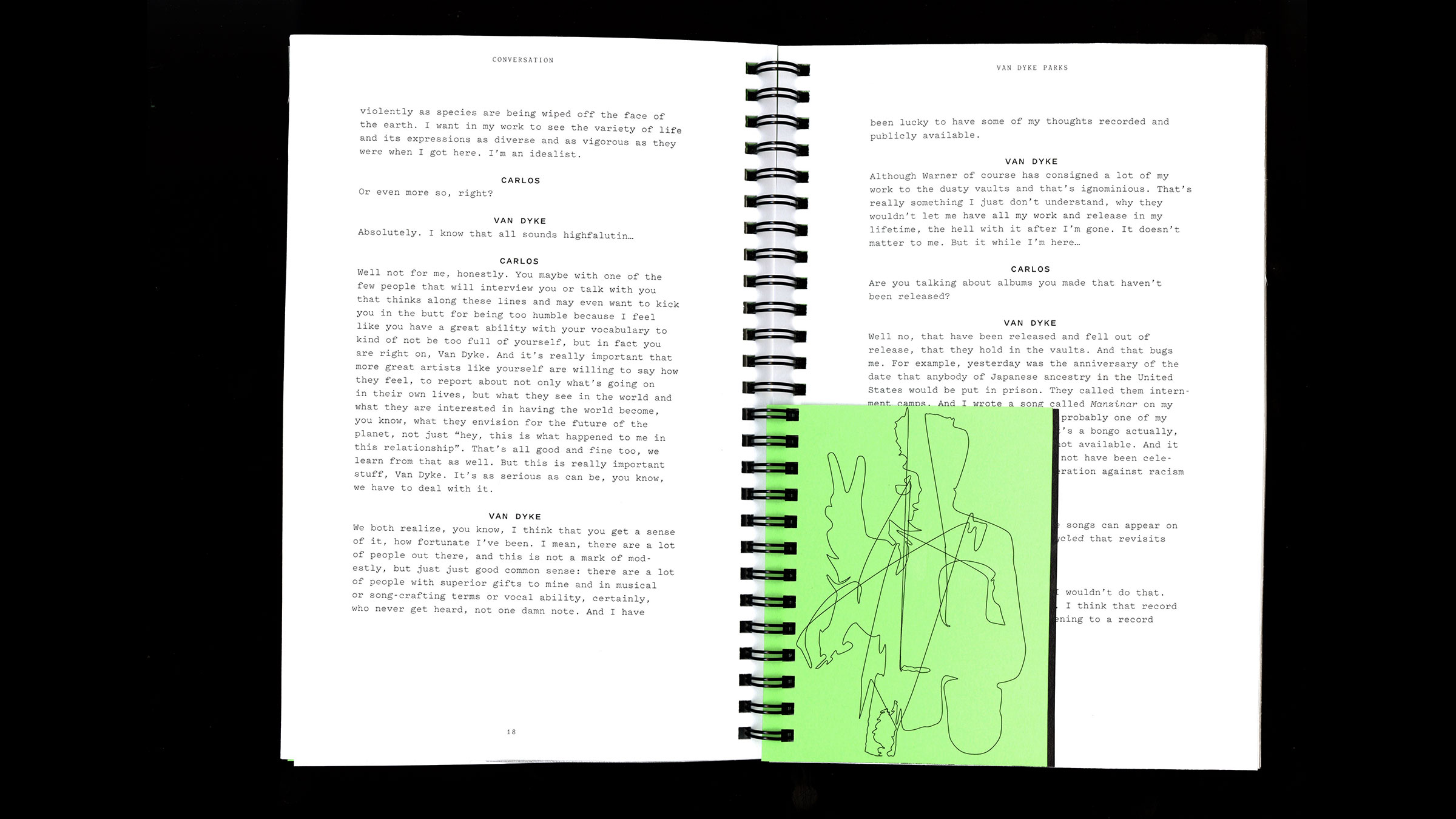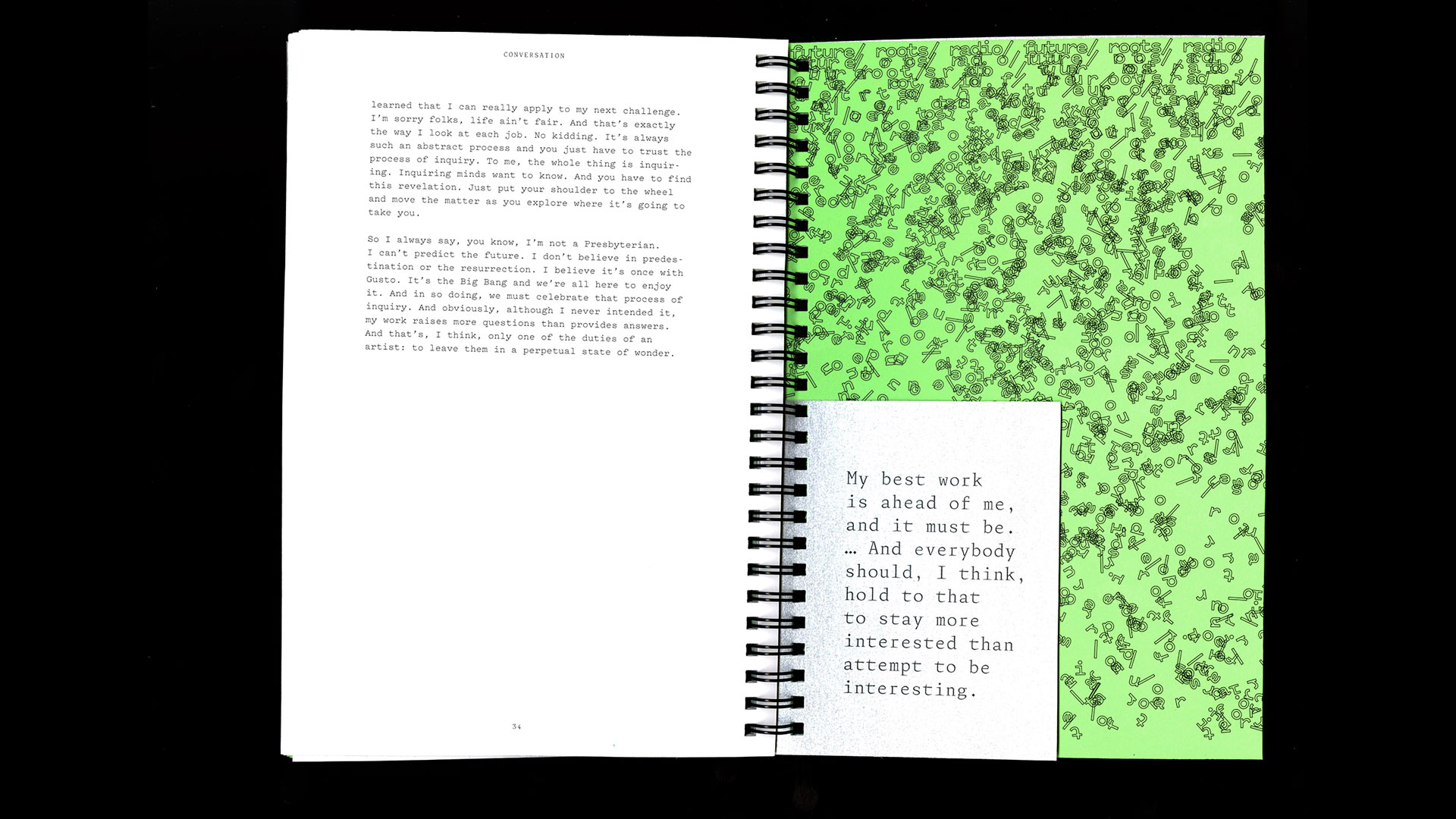Dublab
A proposed identity system for an experimental online radio station in Los Angeles that explores the question: how can you draw with sound?
Related project: Order and Chaos
Instructors: Brad Bartlett, Ivan Cruz, Miles Mazzie
Category: Identity, type design, interactive, print
Year: 2018
Future Roots Radio
Dublab is an independent online radio that prides itself on being a hotbed for emerging music, art, and culture. Since 1999, its experimental ethos has attracted musicians including Flying Lotus, Daedelus, and many more.
As a kid in LA, I’ve been a big fan for as long as I can remember. Their tagline ”Future Roots” refers to their style of mixing old and new to create something fresh.
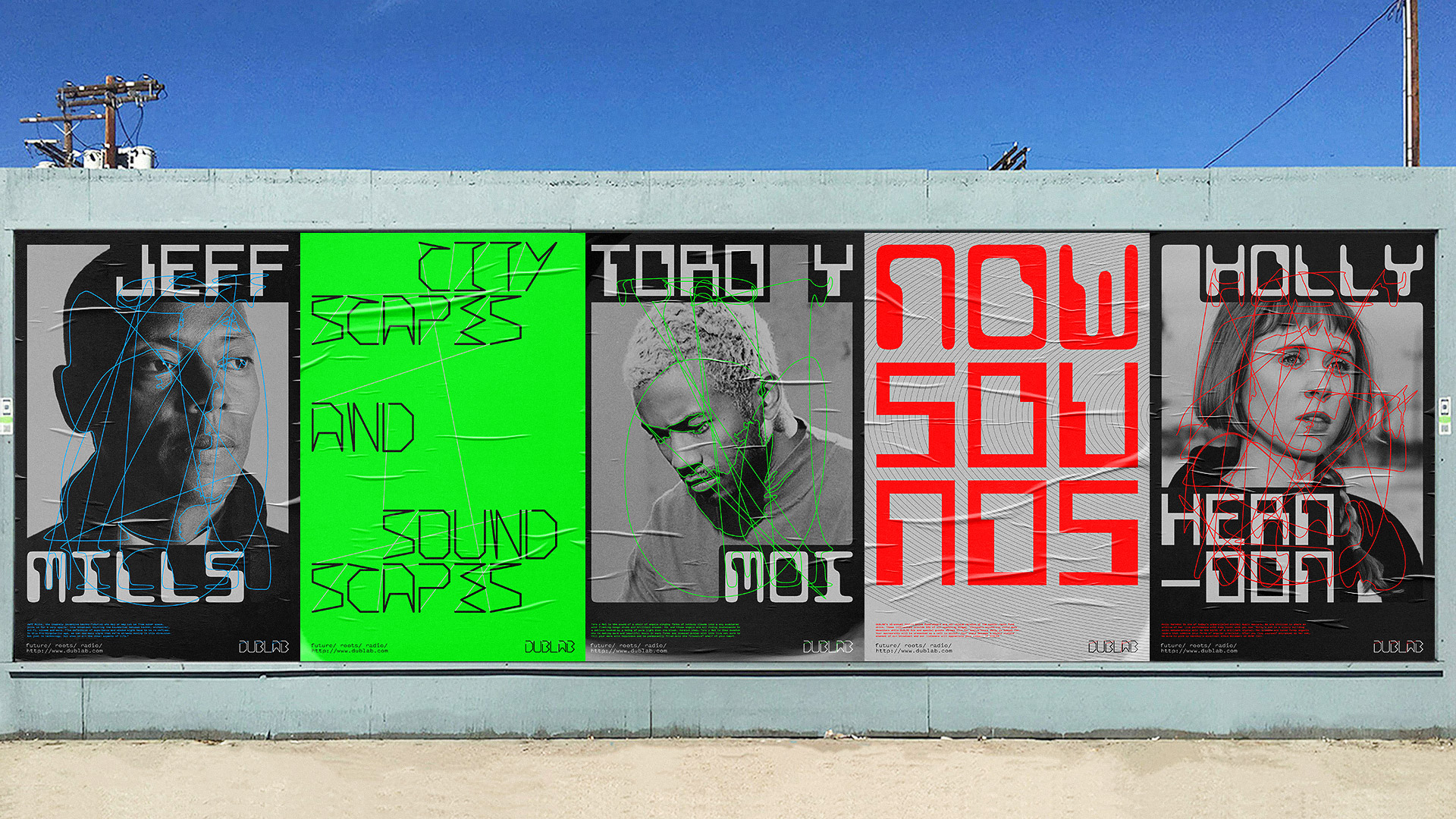
Drawing with Sound
I created a unique tool for making posters and large-scale installations through sound synthesis.
The Processing program works like a feedback loop: images are translated to sound, sound is visualized on the oscilloscope, then that sound is filtered, which affects the image again. It’s like a synthesizer for visuals. The code is based on the open source XYscope library.
Posters
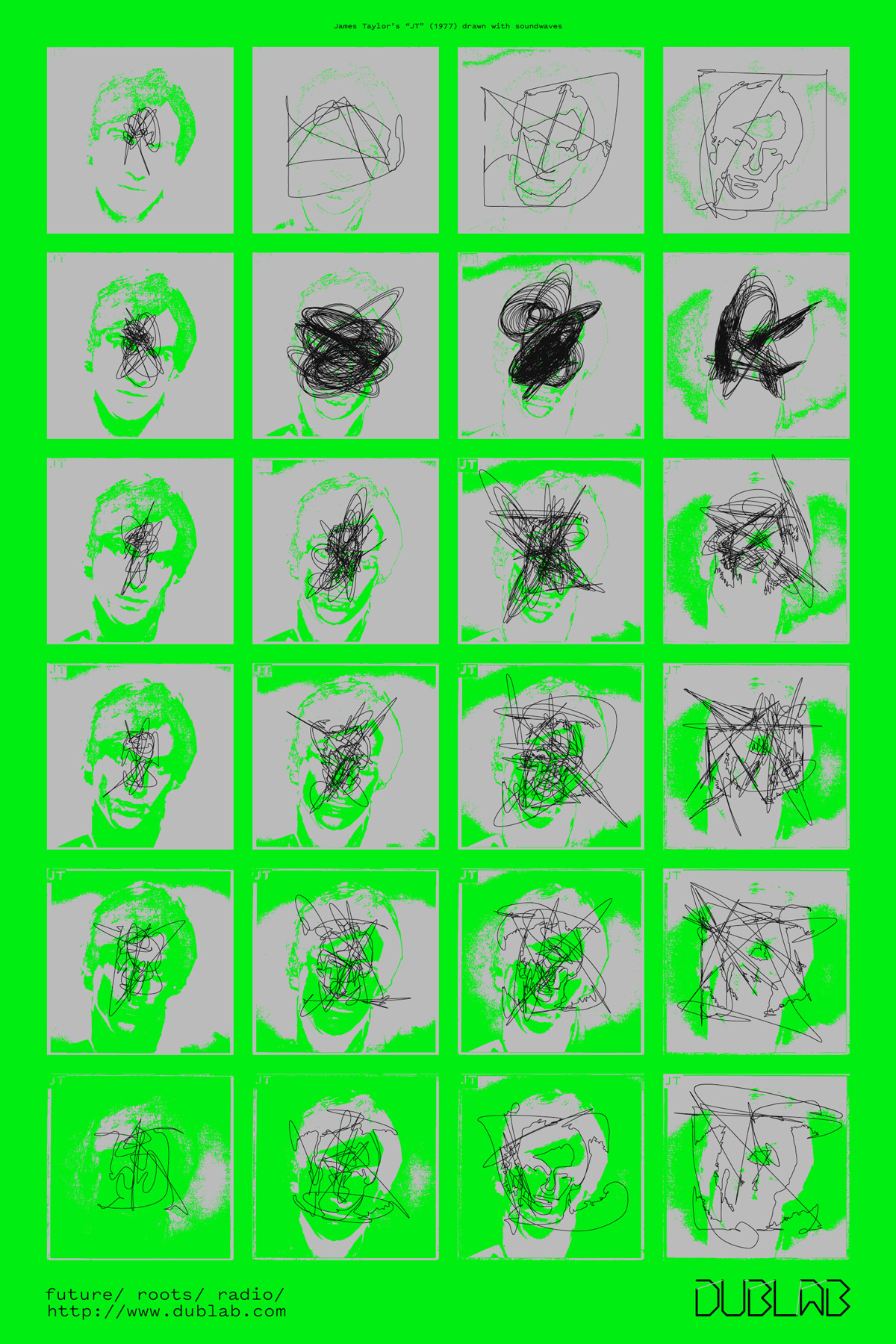

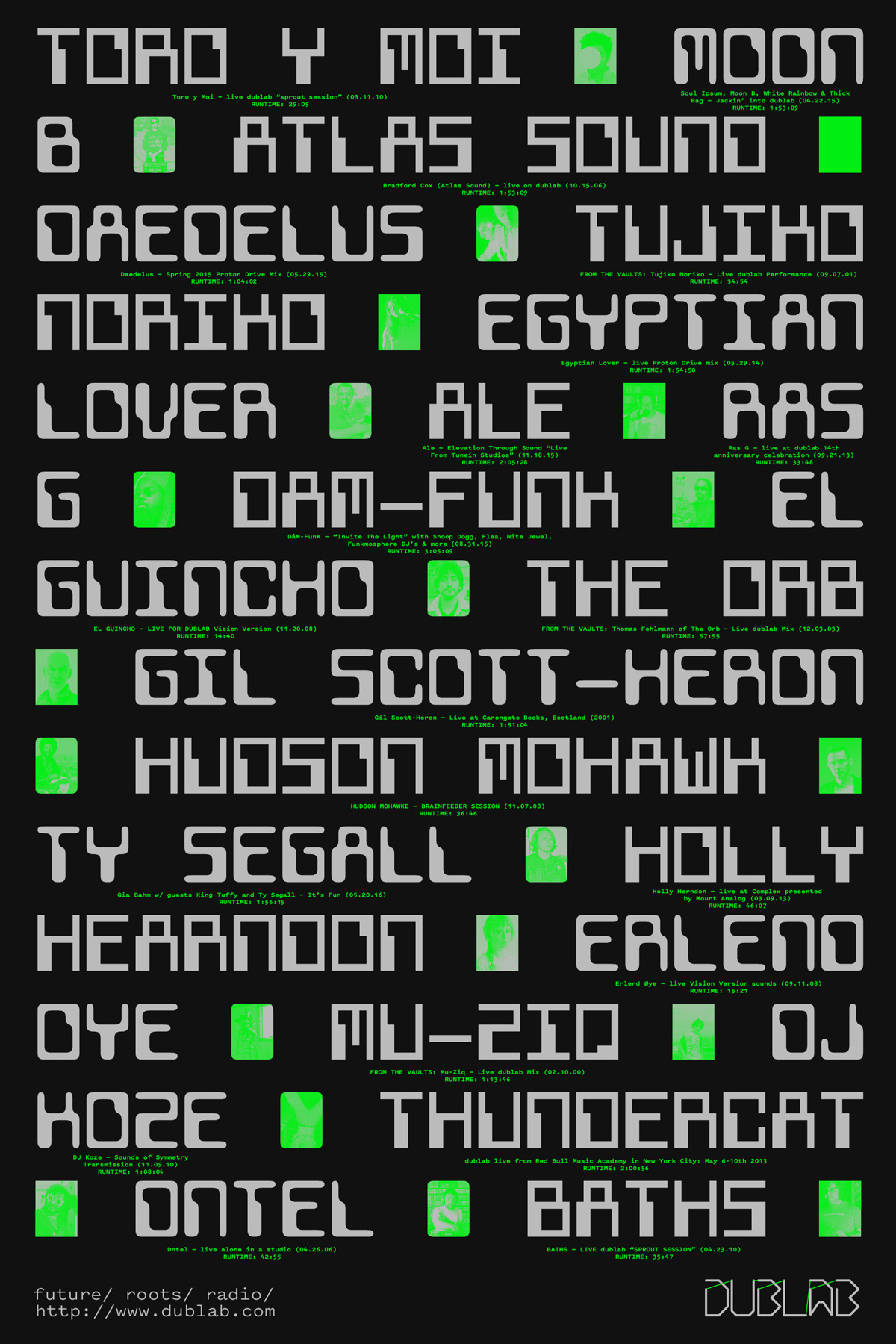
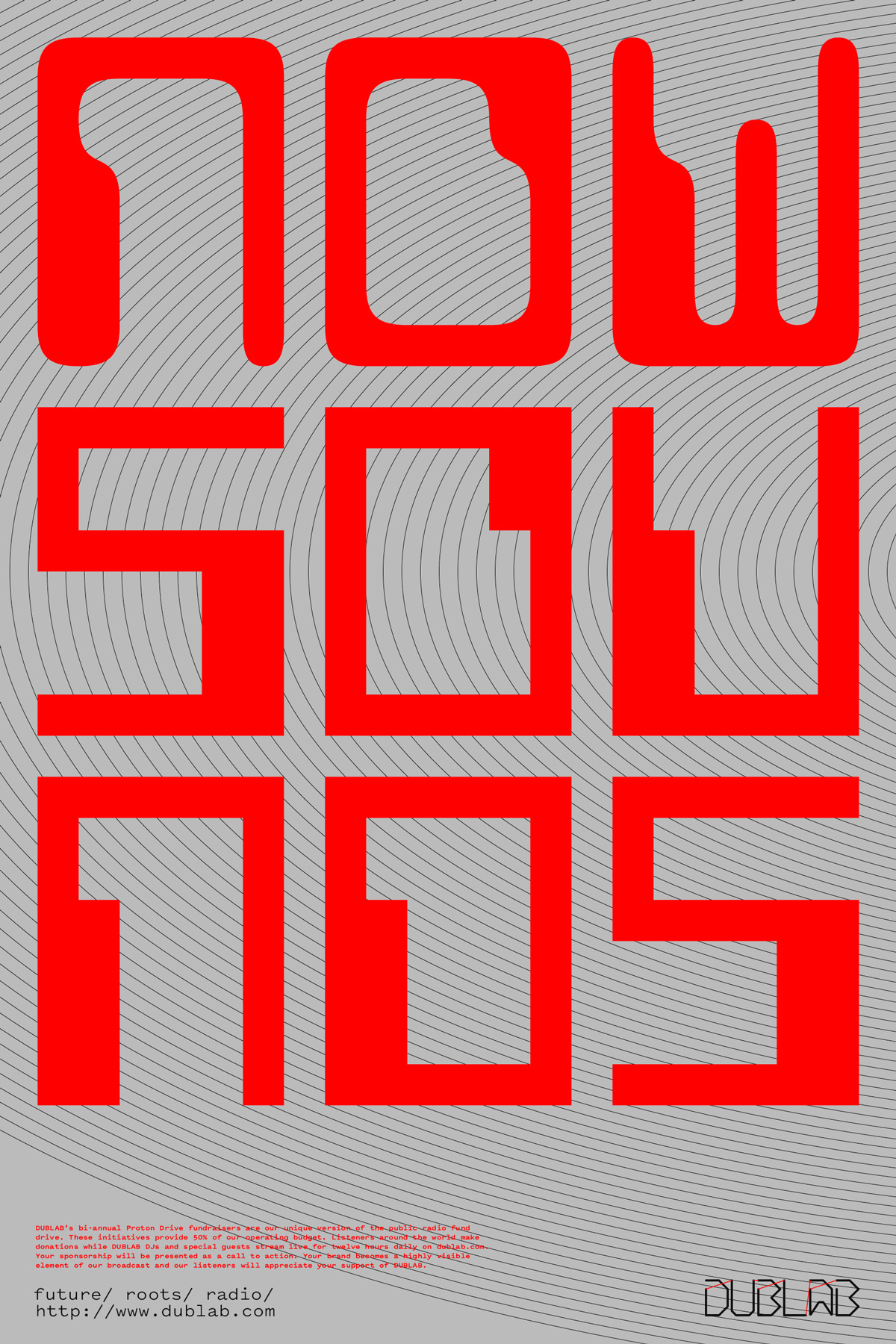
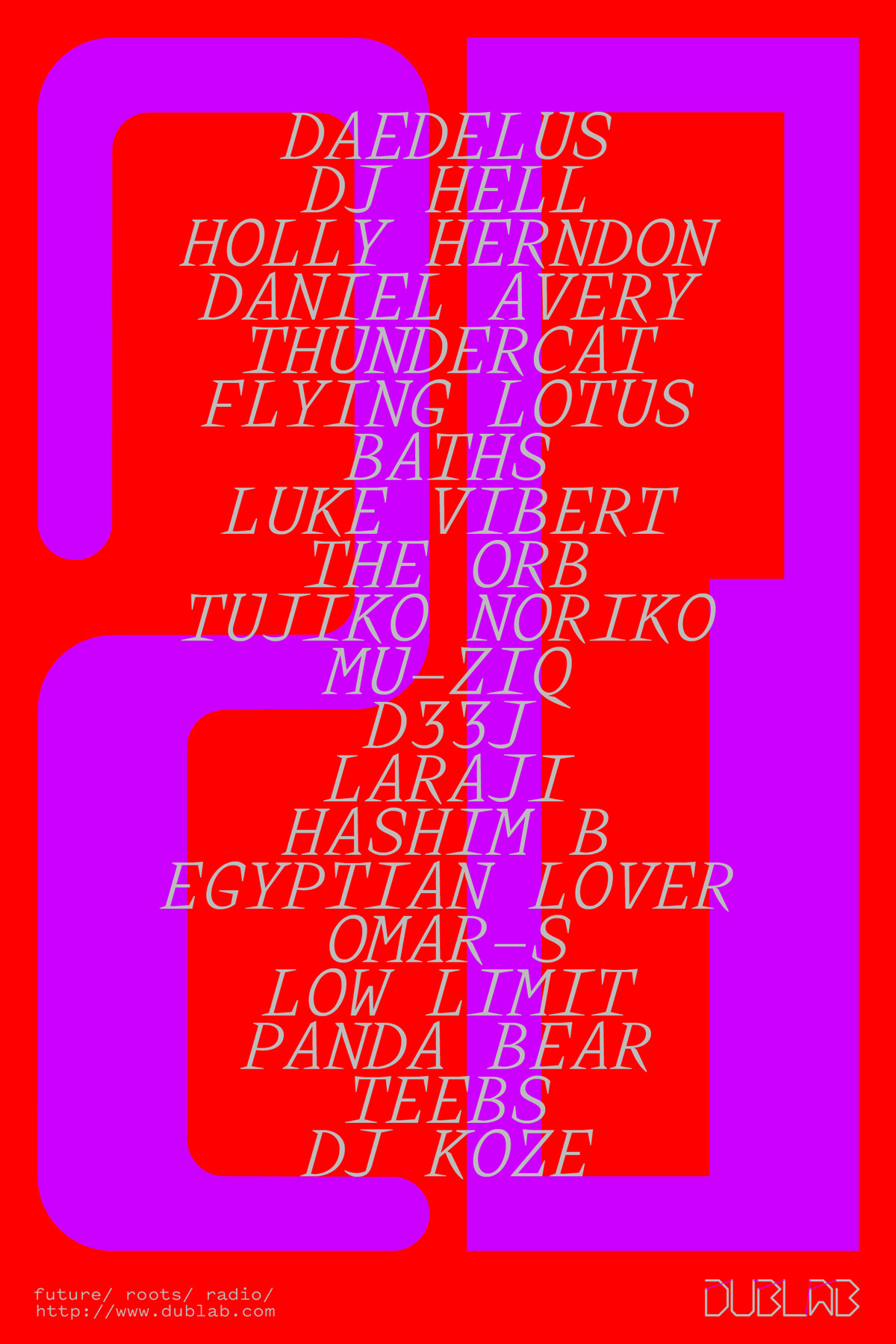
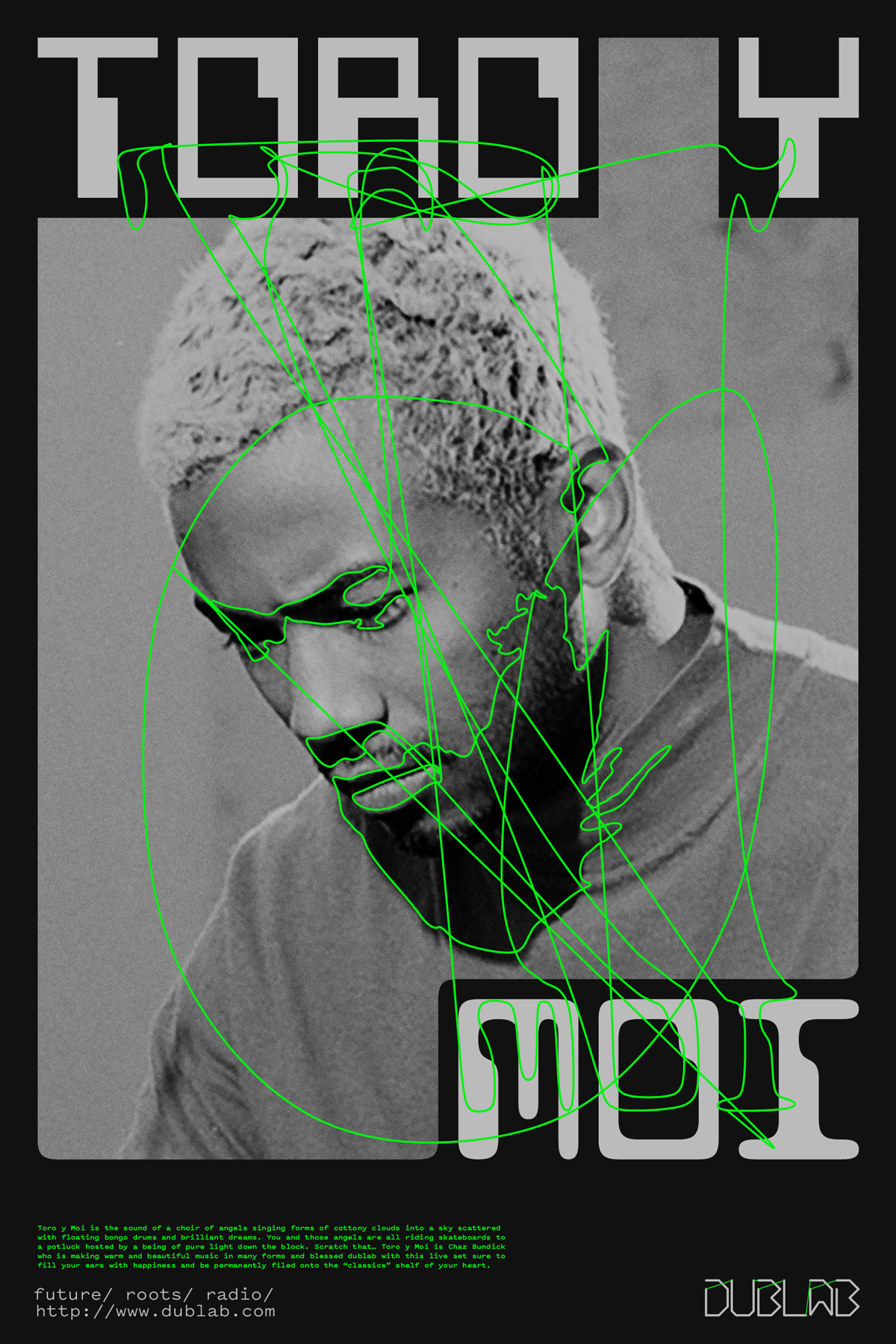
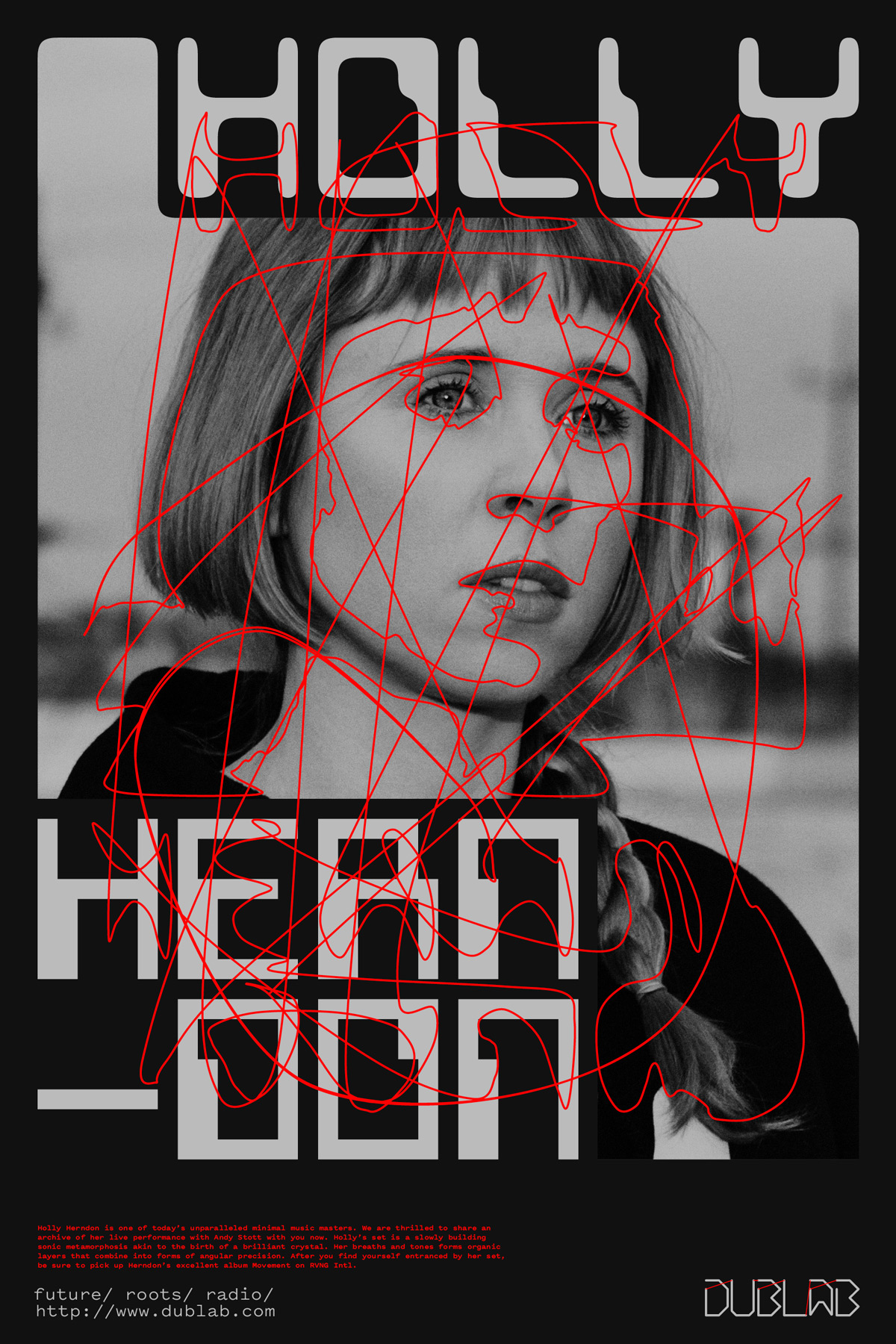
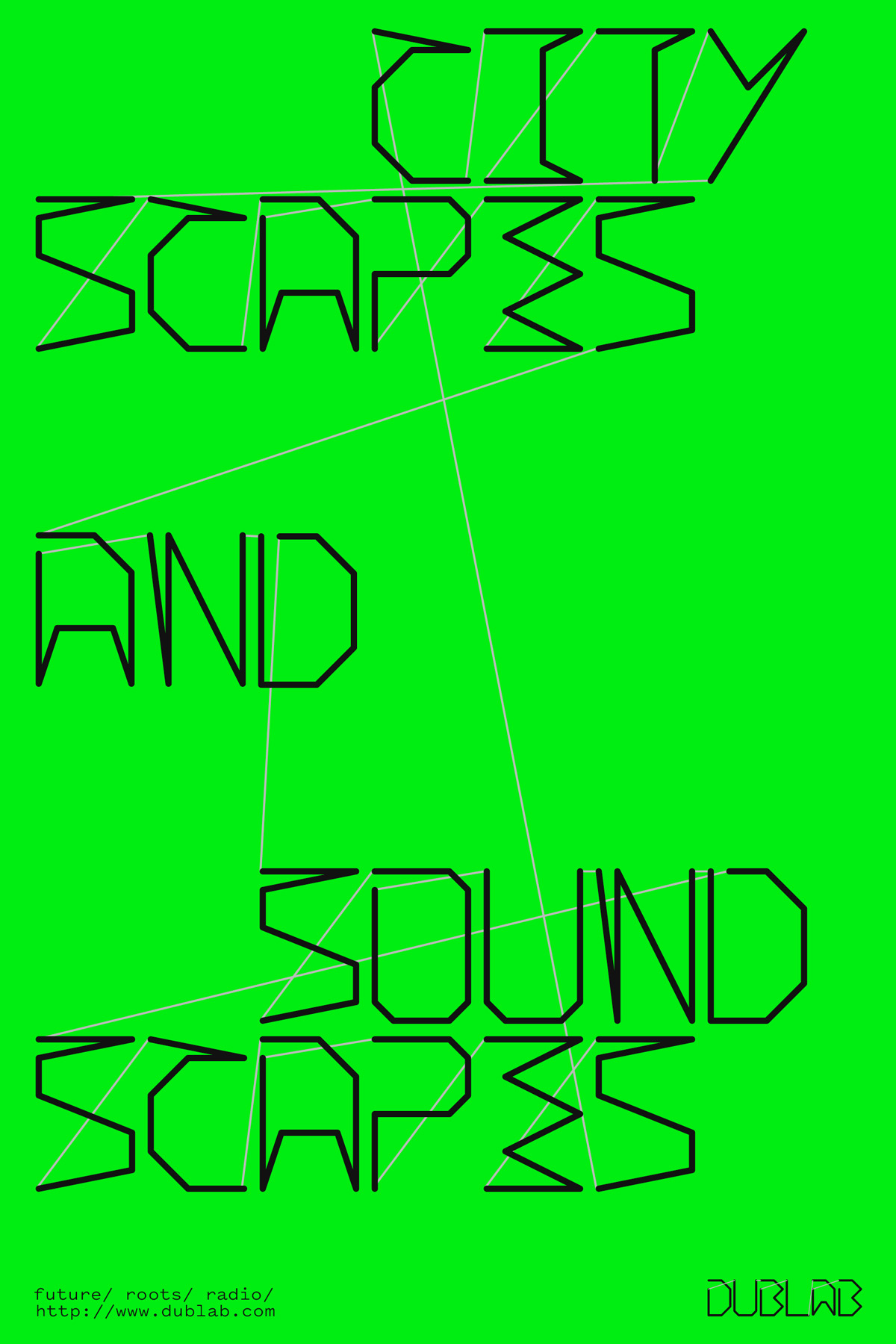
Custom Typefaces
Two typefaces were developed for Dublab based around sound.
DB Data Mono is a true monospace revival of Data70 in sine- and square wave variants inspired by the concept of Future Roots.
DB Circuit Mono is a connected digital “script” based on the way type is rendered on oscilloscopes, used for the logotype.
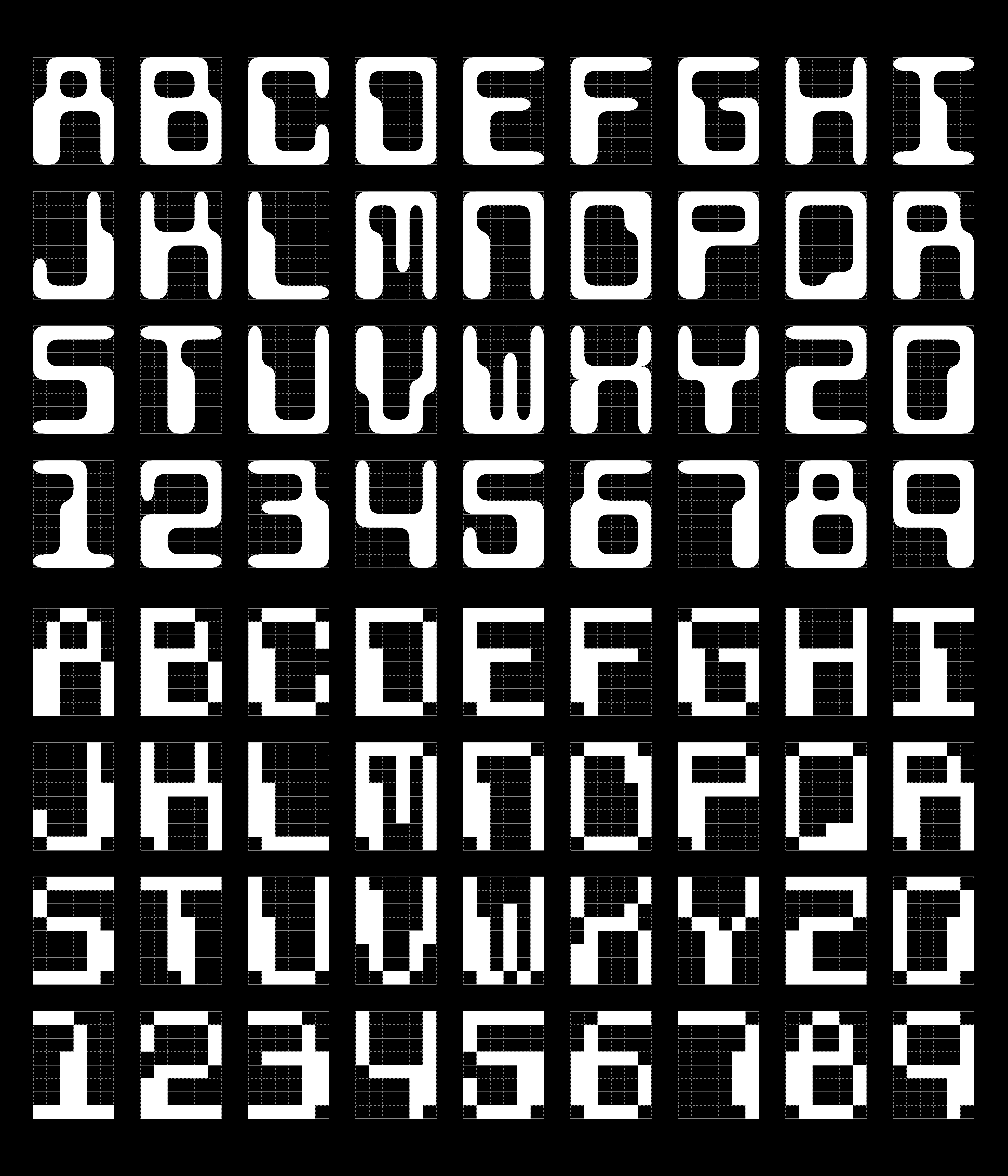 DB Data Mono
DB Data Mono
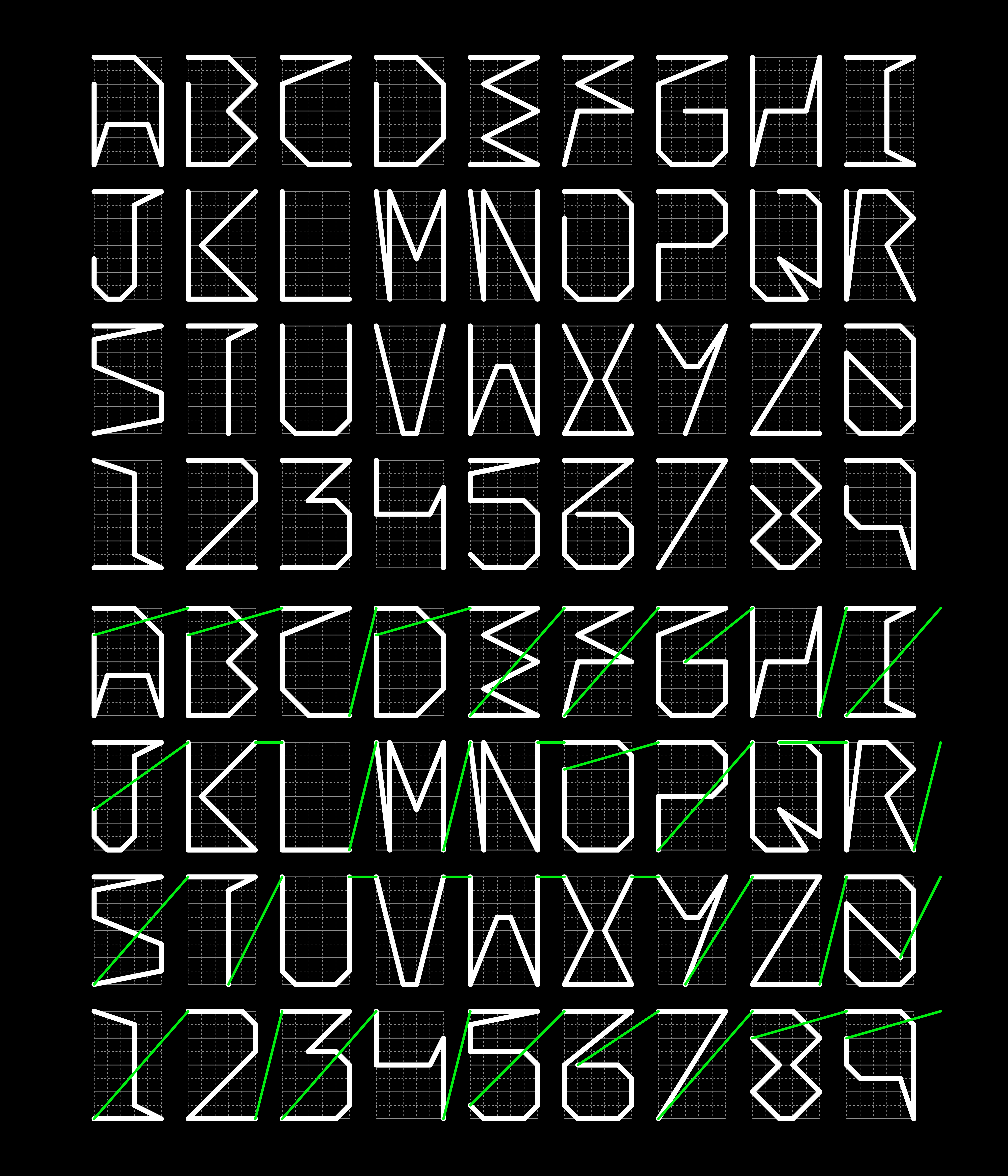 DB Circuit Mono
DB Circuit Mono
Web
Collateral
Inspired by the concept of Future Roots, dot matrix printing plays a prominent role in the identity. Dot matrix paper becomes an envelope and letter in one.
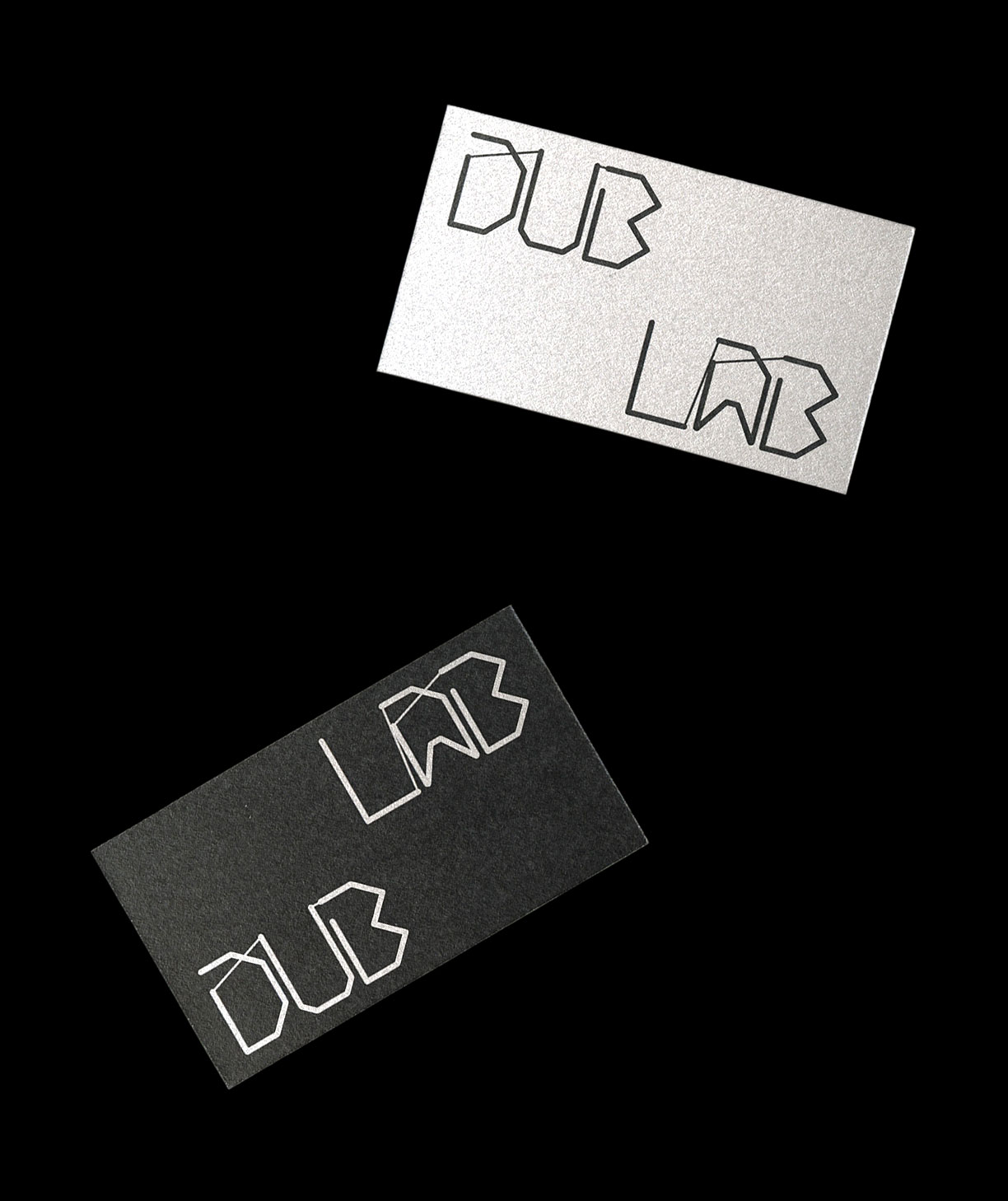
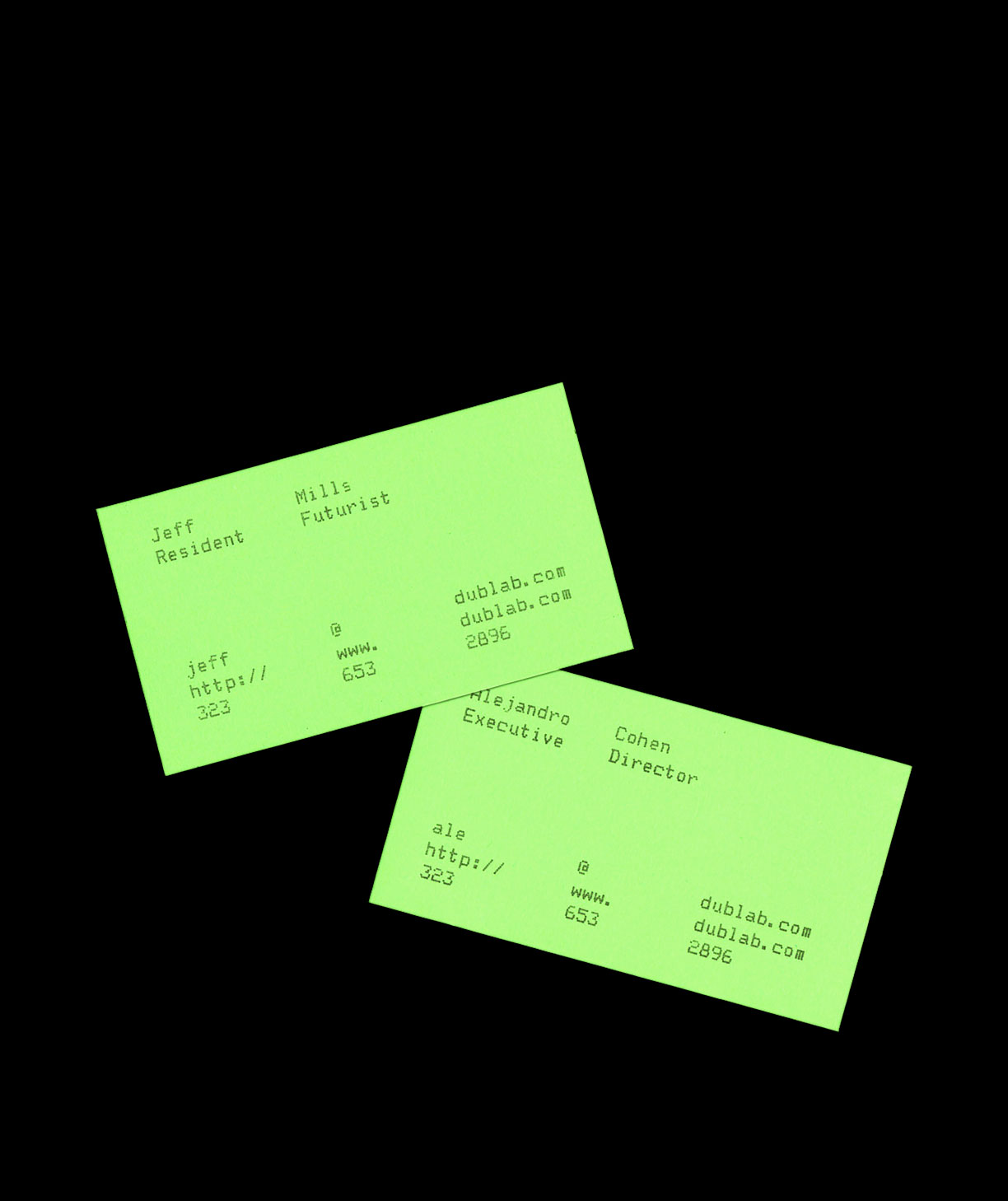
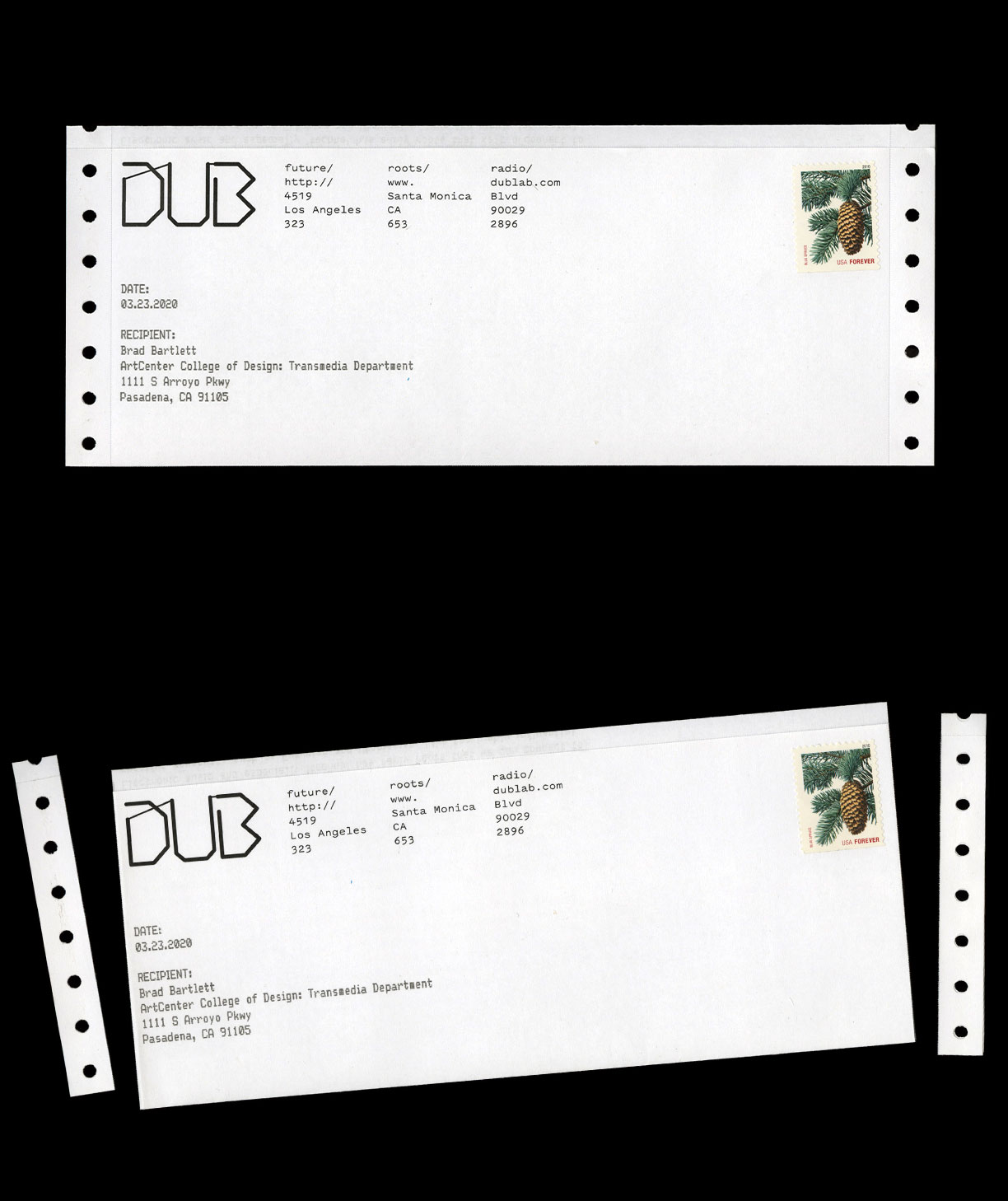
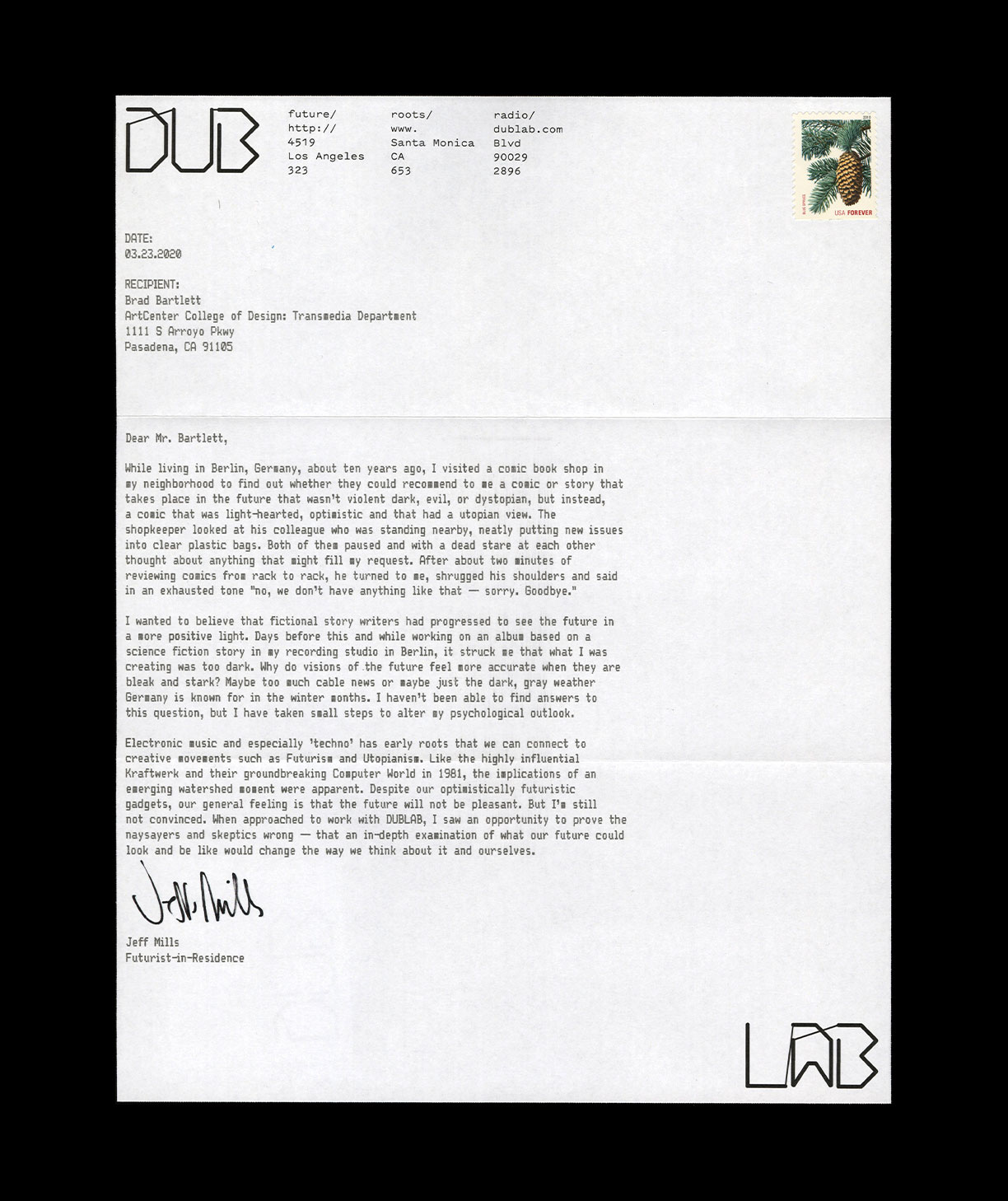
In Conversation
I met Mark (Dublab’s founder) at an event where he gave a talk on chance in music. Looking to get deeper into my research, I struck up a conversation. He was passionate and excited to share.
I asked directly what interested Mark that Dublab could do more of, and he mentioned that Dublab had a large archive of interviews with musicians that he felt was important to preserve. I took the initiative to propose a print version and transcribe one of the most memorable interviews.
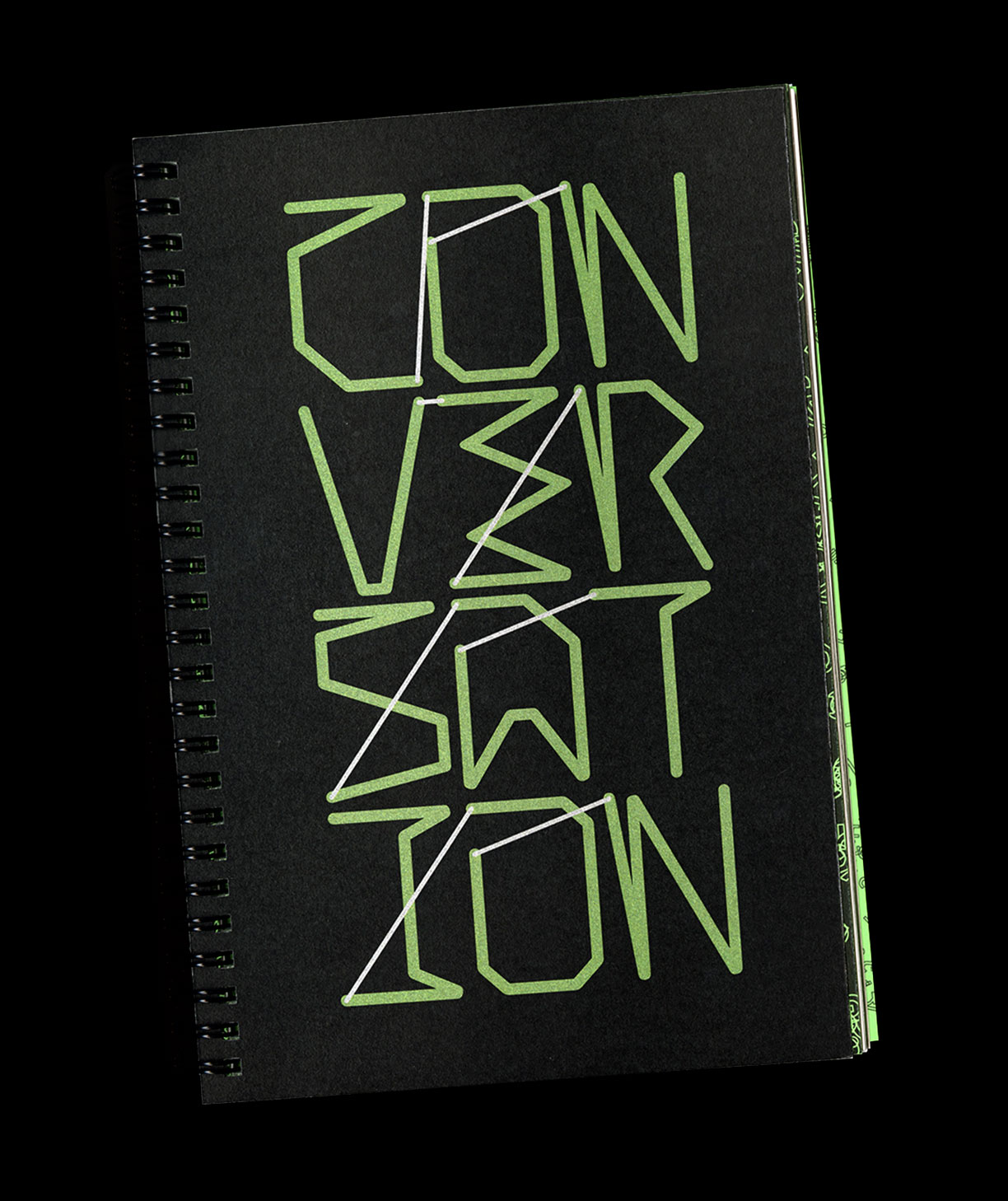
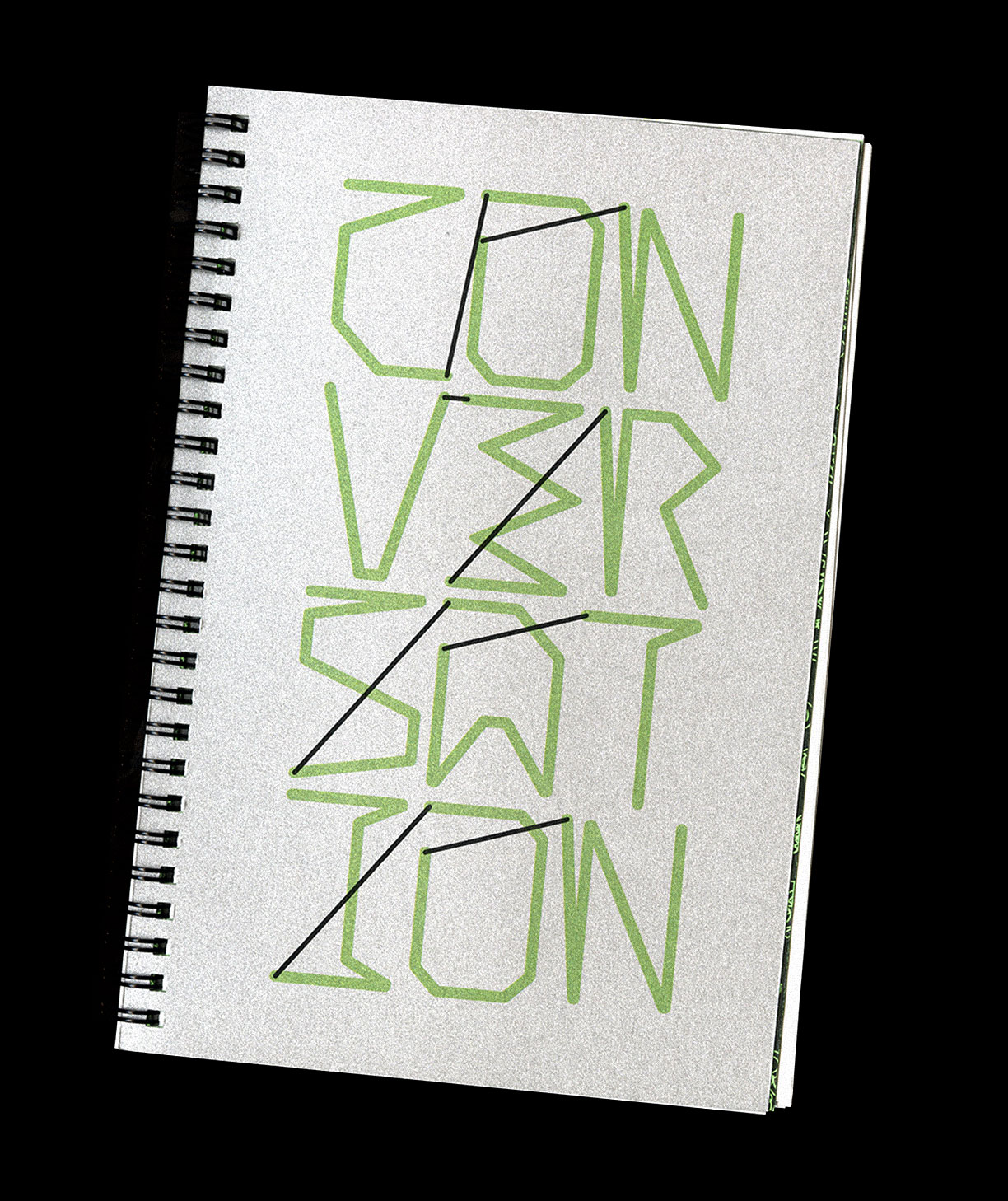
Related project: Order and Chaos
